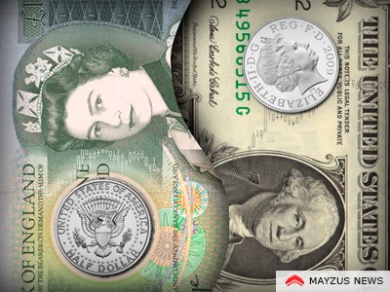The dollar was losing momentum yesterday and early Tuesday as the Institute for Supply Management, ISM, announced that its index for national factory activity fell 6% in February. New orders, a key indicator for future growth, accounted for much of the fall. US stocks fell after being closed since Thursday due to the Easter holidays. The weak ISM manufacturing data together worries in the euro zone after the Cyprus bailout and some growth concerns in China, point towards a softening of economic activity and a weaker sentiment prior to the 2013 first-quarter earnings session.
EURO/USD fell 20 points to 1.2863 and also lost ground towards the Japanese yen, JPY, trading at 92,96 yen to the dollar. Copper prices fell to the lowest level in months on Chinese growth concern.
Oil prices are strong. Brent crude trades at USD 110,80 a barrel. Gold is up to 1602.
The ink was barely dry on the bailout of the Cypriot banking system last week when the legal challenges began rushing in. The first challenge was launched by the powerful Church of Cyprus which has big business interests on the island, which questioned the legality of shareholders in Bank of Cyprus having their equity stakes taken as part of the bailout mechanism. The complaint was filed on the basis that expropriation of property is contrary to the Constitution of Cyprus. The Church successfully petitioned the government. More legal challenges are to come.
A blame game hunt to find the “guilty men” responsible for the banking disaster has also intensified. Both the Minister of Finance and the Governor of the Central Bank have been caught in the fire line. The crisis is most likely to have potentially more worrying consequences for Cyprus’ relation to the EU. Politicians and officials being instrumental in securing that Cyprus became a member in the EU and EURO, have voiced grave concern and stressed that if they would not have recommended membership if they had seen what has now been coming.
Cypriots start to be critical for the speculative way their banks were run, but the anger and fury are mainly directed against Germany and EU which “wanted to punish Cyprus”. There is also growing irritation over EU singling out Cyprus as the only “offshore financial center” culprit. Germany stressed that the financial sector in Cyprus was seven times its GDP without asking questions to other EURO and EU members as Malta and Luxembourg where the baking sector is 8 and 22 times bigger than the GDP.
There is also growing irritation as to the aggressive way other offshore destinations inside and outside Europe now is trying to steal especially Russian clients away. Instead of demonstrating solidarity with a striving Cyprus and their banking sector these same countries are now trying to lure potential clients to their “tax havens”.
Follow up with or daily market reviews on http://www.MAYZUS.com/en/market-reviews.html









